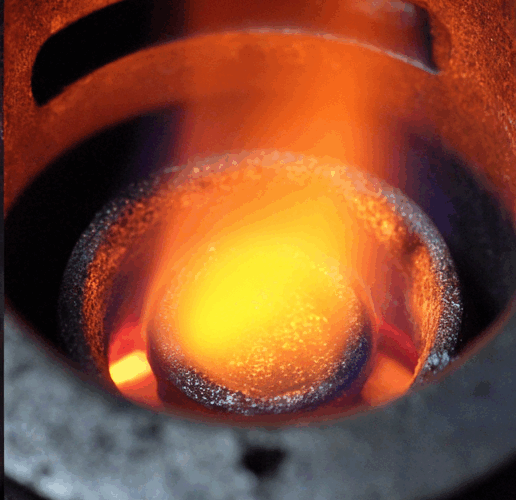Heating your home with gas equipment is not only about comfort and warmth, but also about considerable fuel costs if the heating system is inefficient. Problems with gas boilers, water heaters and other devices can lead to increased gas consumption, and therefore to unnecessary costs. At the same time, proper organization of gas equipment repair is the key to ensuring that your system works long and efficiently, and that your heating costs remain within reasonable limits.
Repair of gas equipment for the home not only eliminates current faults, but also helps improve its operation, increase the efficiency of the system, and prevent possible emergency situations. That is why it is important to understand how to properly organize repairs, what work and services to include in regular maintenance, and how to choose a reliable specialist.
The main reasons for repairing gas equipment in the house
Gas equipment, like any other technical device, requires careful attention and regular monitoring. One of the main reasons for carrying out repairs is inefficiency of the system, which can be caused by various problems. These problems can not only reduce the comfort of living, but also lead to increase in gas consumption, which, in turn, will affect your budget.
The first reason to seek repairs is reduction of heat transfer of equipment. Over time, equipment can lose its efficiency. Heat exchanger problems, filter blockages, gas leaks or pump malfunctions can cause the boiler or water heater to not operate at the required capacity. The result is increased fuel consumption and cold radiators in the room.
Another common cause is breach of system tightness, which can lead to gas leaks. This is extremely dangerous and requires immediate intervention. Sometimes a gas leak may be barely noticeable, but over time the situation worsens, and even small leaks can cause major accidents. Malfunctions in the ignition system or in the electrical components of the equipment can cause the gas to not burn completely, which in turn also increases fuel consumption.
How to choose professionals for gas equipment repair
Choosing qualified professionals to repair gas equipment is a key task to ensure the safety and efficiency of your heating system. It is important that the company or technician you choose has the necessary licenses and certificates. Work on gas systems requires high qualifications and strict adherence to safety standards.
When choosing professionals, you should pay attention to several key factors:
- Qualifications and experience of employees. Working with gas requires certain knowledge and skills, so it is important that the technicians are certified and have experience working with different types of gas equipment.
- Availability of licenses and certificates. Make sure the company has all the necessary licenses to work with gas systems. This will confirm their ability to carry out work in accordance with legal requirements and safety standards.
- Company reputation. Read reviews and check out the company’s ratings on independent platforms. A good reputation in this business is an important indicator of reliability.
- Guarantees for work performedA quality company will definitely provide guarantees for the work performed, which indicates a high level of confidence in its competence.
- Availability of liability insuranceWorking with gas always involves risks, so the company must have insurance in case of accidents or damage.
When choosing a company to repair gas equipment, it is important to consider that the safety of your home and your family depends on the correctness and professionalism of the work performed. Do not skimp on the qualifications of specialists, since cheap but incompetent craftsmen can cause serious consequences.
What Gas Equipment Repair Services Are Needed to Increase Energy Savings
Gas heating and hot water systems require regular maintenance and repairs to maintain their efficiency. When the equipment is working properly, it uses fuel most efficiently, resulting in significant savings. On the other hand, even minor faults can increase gas consumption and reduce the overall efficiency of the system.
One of the key events is regular cleaning of boilers and heating systems. Accumulation of dust, soot and scale on heat exchangers reduces heat transfer and increases gas consumption. Regular cleaning will help restore normal operation of the device and increase its efficiency.
In addition, an important part of the repair is checking and adjusting burners. Gas boilers can lose their efficiency due to improper burner adjustment, which leads to its inefficient operation. Professionals can perform burner adjustment and regulation, improving fuel combustion and ensuring the optimal air/gas ratio.
Checking the ventilation system and replacement of filters— another important service. Clogged filters or ventilation problems can reduce the efficiency of gas equipment and lead to problems with gas combustion. This, in turn, increases fuel consumption and can affect safety.
Regular preventative maintenance, such as replacing worn parts, repairing or replacing pipes and fittings, also helps improve energy savings and prevent unexpected costs for emergency repairs.
How to avoid overpayments when repairing gas equipment
When repairing gas equipment, it is important not only to choose a good specialist, but also do not overpay for services. The market for gas equipment repair services is quite wide, and pricing policies can vary greatly depending on the region and company. However, in order to avoid unpleasant surprises, it is necessary to understand the prices for services in advance.
The first step is price comparison for similar work in several companies. Order an estimate of the cost of repairs from several craftsmen and do not agree to the first offer if it does not suit you. The estimate of the cost of work should be detailed, including the cost of materials and work.
Very importan trequest an estimate before the work begins. The estimate should indicate what work will be done, what materials will be used, and the cost of each service. This will help avoid additional expenses and hidden payments that you were not informed about in advance.
Never agree to work with a company that is not transparent about the cost of its services or tries to disguise the price during the work process. You always have the right to know what exactly you are paying for.
When to replace equipment and when repairs are sufficient
One of the most difficult issues when servicing gas equipment is determining when it is worth replacing equipment and when repairs are sufficient There are a number of signs that may indicate the need to replace the device, and it is important not to make a mistake in choosing.
If your gas equipment breaks down frequently and requires expensive repairs, it may be time to consider replacing it. In the case of old boilers or water heaters that are outdated both morally and technically, replacing the equipment may be a more profitable solution in the long run. New equipment will not only be more efficient, but also safer.
It is also worth considering replacing equipment if it does not meet modern energy efficiency standards. For example, older gas boilers may be significantly less efficient than newer models with lower fuel consumption. If your equipment no longer meets safety standards or does not support the operation of new types of heating systems, replacement will be justified.
However, if the device is relatively new and has only minor problems, it is quite sufficient to carry outrepairto extend its service life. Replacement should only be considered if repair would be too expensive or impossible.
Proper organization of gas equipment repair is not only a way to maintain the system in working order, but also an important step towards saving and safety. Understanding the main aspects of maintenance and repair, choosing qualified specialists and regular preventive maintenance will help you not only save money, but also increase the efficiency of your equipment.
Energy saving directly depends on how well your equipment works. Regular maintenance of gas equipment will help avoid unexpected breakdowns and failures, as well as reduce heating costs. It is important to remember that safety always comes first, and if you are not confident in your abilities, it is better to entrust the work to professionals.
So, to get the most out of your gas appliances, don’t forget about regular checks, maintenance and repairs. If you need to replace old equipment, don’t put it off to avoid further problems.
It is recommended to perform preventive maintenance of gas equipment at least once a year. This will help to promptly identify faults and reduce the likelihood of accidents.
If your equipment is not old, but breaks down frequently and requires expensive repairs, it may be better to conduct a full diagnosis and consider replacement. In the case of older models, replacement may be more cost-effective than constant repairs.

